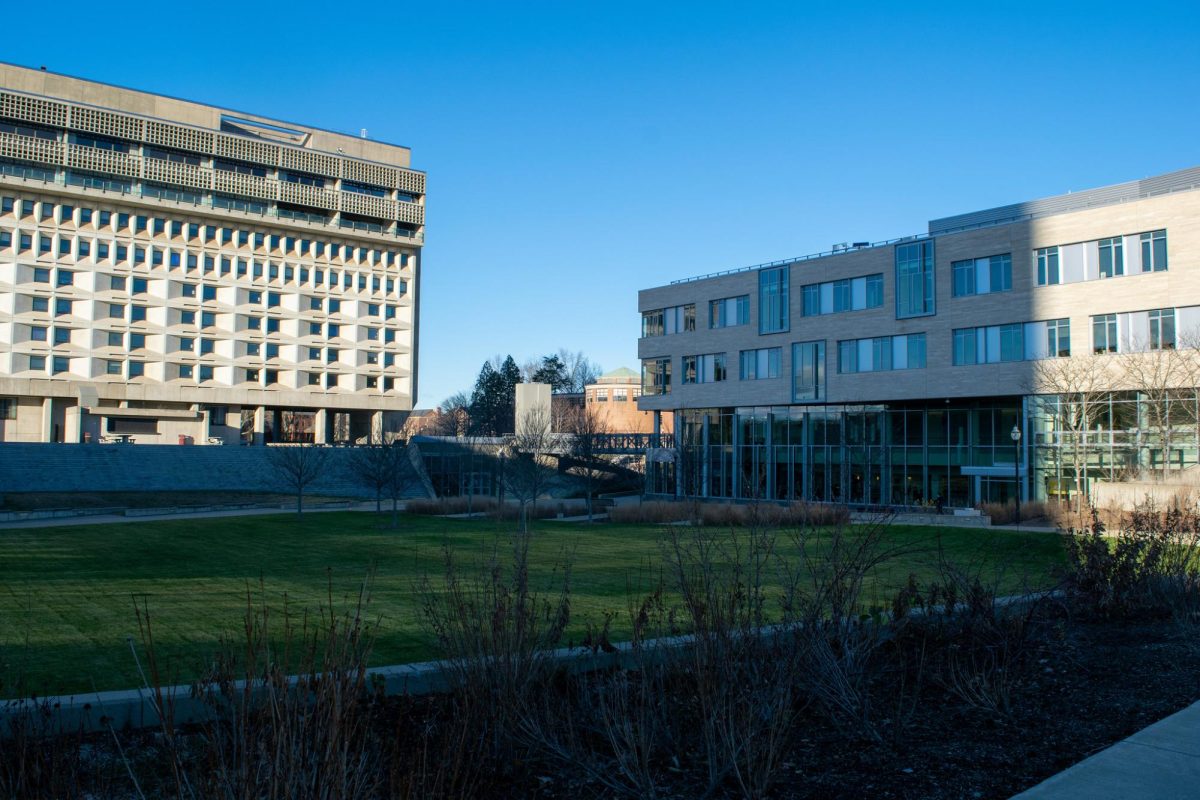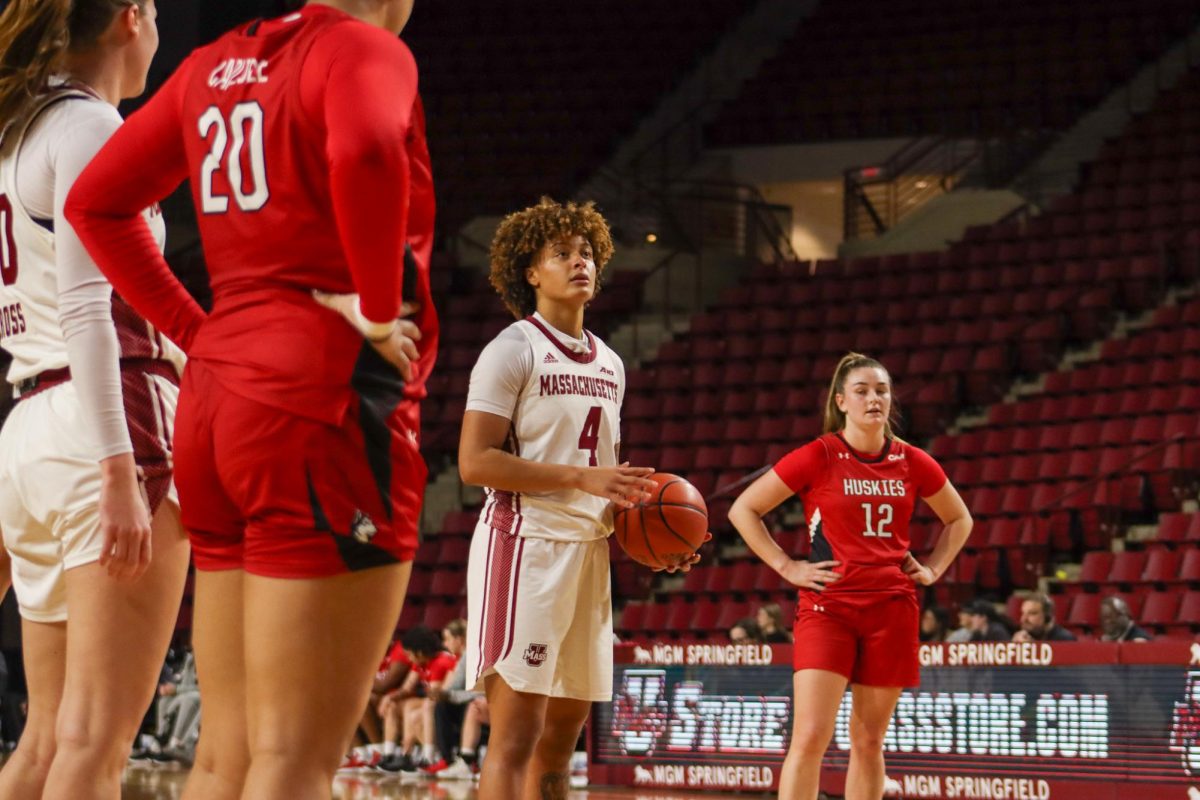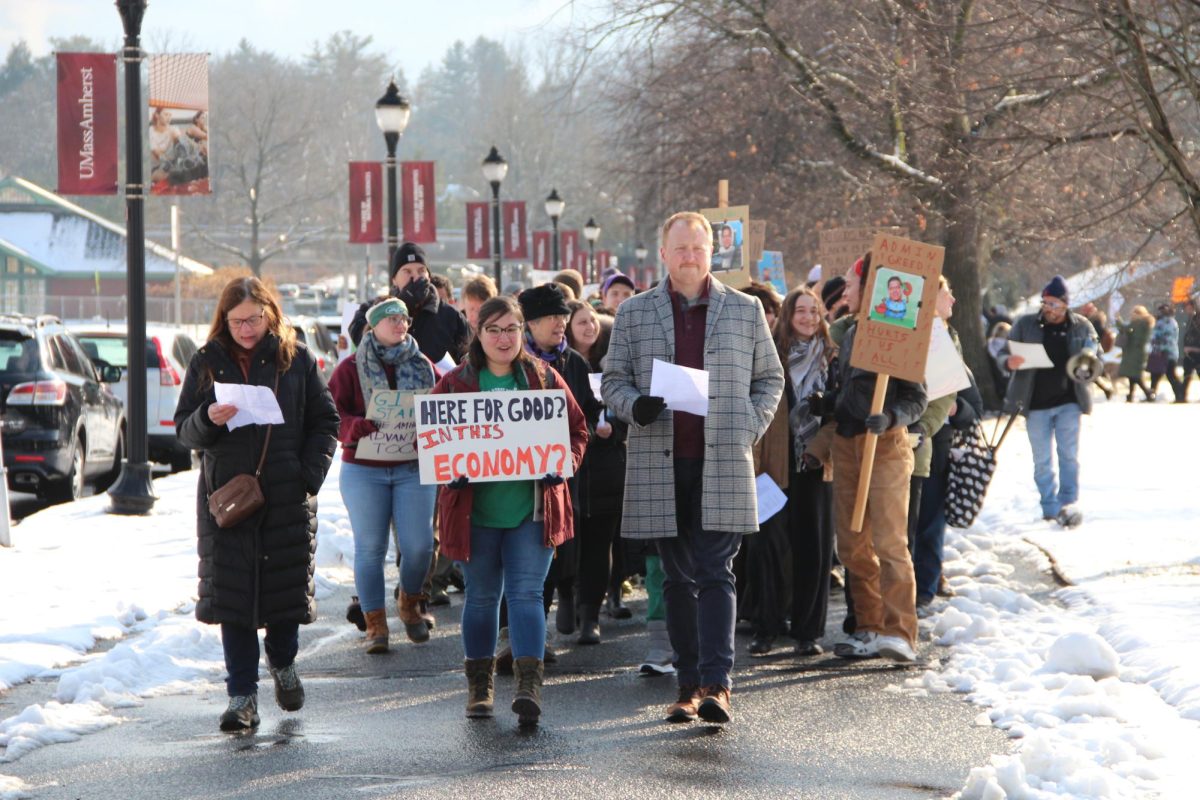On Wednesday, March 27, Dr. Irena Kogan presented a talk titled “Partnership Formation in the Context of Forced Migration of Refugees from the Middle East to Europe” at Thompson Hall.
Kogan, who holds a chair in comparative sociology from the University of Mannheim, was a scholar-in-residence at the University of Massachusetts this past March.
Kogan discussed research and data from the project, in which she is a principal investigator, titled “Partnership formation in the context of refugee migration” (PARFORM). The study, which is in its first wave of three, covers partnership patterns of Syrian and Afghan migrants in Germany.
The study takes place against the backdrop of the Syrian Civil War and the American war in Afghanistan, both of which resulted in millions of refugees. In 2015, 1.3 million refugees requested asylum in Europe, the most in any year since the second World War.
That year, the greatest number of asylum applications came from Syrians, at 29 percent, followed by Afghans at 14 percent. Germany accepted the most refugees by far.
The PARFORMstudy surveyed unmarried male refugees with Syrian or Afghan citizenship who were born between 1986 and 2002 and arrived in Germany between 2014 and 2018. The first wave of the PARFORMstudy was collected in 2022 and 2023. According to the Parform Project website, one of their goals is to understand how these young men deal with the challenges of forming partnerships as refugees in Germany.
To find subjects, Kogan and her team first sampled German cities with high proportions of Afghan and Syrian refugees. They then searched through all address data for specific municipalities. The team then sent out invitation letters — which were required to state real aims to gain ethical approval — which described a survey about how refugees were doing socially seven years after their arrival in Germany.
In the days after the letters arrived, Kogan received constant phone calls. Callers, including prospective respondents as well as wives, were concerned about why they should do the survey.
Some were hesitant, either because they didn’t understand the nature of the survey, or because they were concerned about data going to authorities.
“People told me these stories that they are always isolated in [Germany], they work all the time, they have difficulties to find friends and partners.” She heard things like “I want to migrate from here because I feel unwelcome.”
Her way to persuade callers to participate in the study was to say, “we want to hear your voice.”
Questionnaires were done face-to-face and online.
An example vignette question from the PARFORMstudy was, “You have met a Syrian woman, who lives in Germany. This woman is Muslim, but religion does not play a big role in her life. The woman has never attended a university. In general, can you imagine getting married to the woman described?”
Many refugees could only read in German, rather than their native Arabic, Dari or Pashto. For the online surveys, respondents were able to switch languages for each question. Some questions were easier for respondents to answer in German than in their native languages. “Quite a significant proportion took a survey in German,” Kogan said.
The study measured for homophily, the sociological concept that individuals with similarities tend to bond with one another, or more simply that “birds of a feather flock together.”
The expectation of homophily going into the study was that individuals would show higher preference for those who were like themselves in terms of ethnic origin, migration status and religion. Some of these characteristics are highly correlated, where a Factorial Survey Experiment was used to disentangle them.
Partnership preferences
Partnership preferences showed prejudices. For example, “Those who strongly identify themselves with Turkey reject refugees most, and also those who consume a lot of Turkish media reject Syrian refugees most.”
One significant finding was that native majority populations reject partnerships with refugees. An unexpected finding was that “female Muslim migrants reject refugees more than any other group.”
Some findings were less surprising. In terms of partnership preferences, “everyone likes highly educated,” Kogan said, and everyone rejects the highly religious. Her recommendation for a refugee would be “to find a co-ethnic partner in Germany but do it quickly because there are not many of them.”
Partnership history
Stated preferences did not line up with lived realities. In a sample of 3,708 men, Kogan’s team collected individuals’ dating histories. Respondents were asked if their past partnerships had been interethnic or not, interreligious or not, with Germans or non-Germans and highly educated individuals or not. The preferences of refugees were compared to those of native Germans as well as men of migrant backgrounds.
One slide read, “In contrast to their revealed preferences, male refugees are more likely to have casual and are less likely to be in committed partnerships.”
Another slide read, “Refugees or individuals who have migration backgrounds are more likely to be in interethnic relationships than natives.”
There was also a slight tendency that “refugees are more likely to have partnerships with highly educated” individuals.
More unexpected was the finding that refugees are “significantly more likely to cross the religion boundary,” irrespective of denomination or religiosity. “This interreligious difference is very pronounced.”
“What you see here is a totally different picture as opposed to preferences.”
The study revealed a preference to reject non-marital partnerships, but not a tendency to reject them in practice. People may have their preferences, but “they adapt them to the situation,” Kogan explained.
Kogan and her team found that refugees’ partnership patterns align with the partnership preferences of the established population in non-marital relationships, but “tend to adhere to culturally imposed preferences when it comes to marriages.”
Alex Rowe can be reached at [email protected]



















